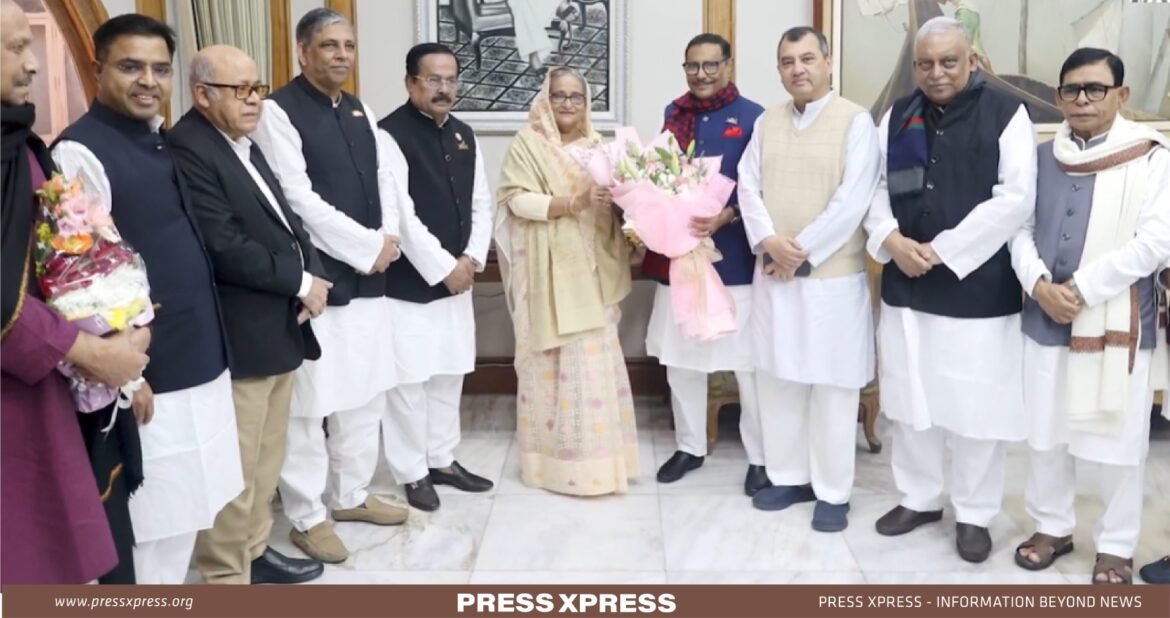Key highlights
- Conducted fairly with joint efforts from the government and Election Commission
- Awami League leading with victories in 223 out of 298 declared seats
- Independents, mostly aligned with Awami League, secured 62 seats
- Awami League’s decision to run independent candidates reshaped the political landscape
- BNP’s absence and past boycotts raise questions about the opposition’s future
Bangladesh witnessed a historic and peaceful election on Sunday (January 7), as millions of voters cast their ballots to elect the 12th parliament. According to Chief Election Commissioner Kazi Habibul Awal, the voter turnout was approximately 40 percent of the total number of eligible voters. This marks a significant moment for the country’s democracy and stability. However, the election was conducted in a free, fair and impartial manner with joint efforts from the government and the Election Commission.
You can also read: Sheikh Hasina Secures Historic Fifth Term Amidst Global Acclaim
Awami League President Sheikh Hasina is on track to become Prime Minister for the fifth time. However, there is discussion about who will be the opposition party in the National Parliament.
Based on the announced results of yesterday’s elections and the information about leading candidates, the Awami League is once again obtaining an overwhelming majority.
So far, results have been declared for 298 out of 299 seats. Out of these, the Awami League has won in 223 constituencies. The Workers Party of Bangladesh, Jatiya Samajtantrik Dal-JSD, and Bangladesh Kalyan Party have each secured one seat. Independents have gained the most victories after major parties, with 62 seats, with many of them aligned with the Awami League. The main opposition party in parliament, the National Party, has won in 11 constituencies.
The New Era for Independent Candidates
As the BNP and like-minded political parties, absent from the scene, the Awami League’s decision to run its leaders as independent candidates in the parliamentary elections has yielded unexpected success, reshaping the political landscape. This surprising triumph suggests a potential shift towards internal competition within the ruling party.
Most of the victorious independent candidates have ties to the Awami League. Notably, Syed Ekramuzzaman, expelled from the BNP, secured victory in Brahmanbaria-1 (Nasirnagar), while independent candidate Mohammad Husamuddin Chowdhury clinched Sylhet-5 (Kanaighat-Jakiganj).
Out of the 62 seats secured by independent candidates, a majority are aligned with the Awami League. Syed Ekramuzzaman, previously suspended from the BNP, emerged victorious in Brahmanbaria-1 (Nasirnagar), while Mohammad Husamuddin Chowdhury, contesting independently in Sylhet-5 (Kanaighat and Zakiganj), also emerged triumphant.
As Bangladesh enters a new term under Awami League governance, the reshaping of the opposition raises pivotal questions about the nation’s parliamentary dynamics and political equilibrium.
Uncertainty in Opposition
The BNP’s decision to boycott the recent election wasn’t their first instance of abstaining from electoral participation. Back in 2014, they also refrained from engaging in the electoral process, driven by concerns over potential defeat following their poor performance in 2008. Their demand for an impartial caretaker government contradicted the constitutional norms. During that time, their actions led to widespread turmoil, manifesting as protests, strikes, blockades, and anti-election campaigns, causing chaos across Bangladesh.
However, their tactics proved futile as the citizens rejected their disruptive agenda and instead supported Sheikh Hasina’s progressive and inclusive policies at the ballot. The main opposition party, due to winning so few seats in parliament, is now facing questions about its future.
Amid much drama, after the alliance’s poor performance, the Jatiya Party (JP) under GM Quader’s leadership had obtained 26 seats from the Awami League in the twelfth national parliamentary elections. In total, the party had candidates for 265 seats this time. However, out of the 26 seats it contested, the JP’s candidates only managed victories in 11.
Except for an agreement, the party’s candidates couldn’t secure wins in any seats.
Consequently, there is a decrease in the number of parliamentary members from the national party in the twelfth parliamentary elections. Presently, the party has 23 elected parliamentary members, and there are four reserved seats for women.
Notable Defeats and Victories
The aftermath of the election saw unexpected defeats for prominent candidates, shaking up the established political order. Several heavyweight figures, including Anwar Hossain Manju and Hasanul Haq Inu, faced surprising losses. However, key leaders from the Awami League secured resounding victories, reaffirming their influence in the National Parliament.
Key Leaders Triumph in National Parliament Elections
Prime Minister and Awami League President Sheikh Hasina has won Gopalganj-3 constituency with 249,962 votes. Her closest competitor, M. Nijamuddin Laskar from the Bangladesh Supreme Party, received 869 votes.
National Parliament leaders like Matia Chowdhury, Speaker of the National Parliament Shirin Sharmin Chaudhury, Awami League General Secretary Obaidul Quader, seasoned leaders Tofail Ahmed, Amir Hossain Amu, Finance Minister AHM Mustafa Kamal, Planning Minister MA Mannan, Home Minister Asaduzzaman Khan, Information and Broadcasting Minister Hasan Mahmud, Commerce Minister Tipu Munshi, Local Government Minister Tajul Islam, Deputy Speaker Shamsul Hoque, all secured victories.
The opposition leader in parliament and chairman of the national party, GM Quader, also secured a win once again. Asaduzzaman Nur has achieved victory for the fifth time.
In their maiden electoral forays, acclaimed figures like cricketer Shakib Al Hasan and film star Ferdous Ahmed have emerged victorious.
Conclusion
Despite facing criticism, Hasina has spearheaded rapid economic growth and the expansion of the garment export industry in a country of 170 million people that was previously burdened by widespread poverty. Under Sheikh Hasina’s resilient leadership, the nation is making significant strides toward development. The journey from a developing nation to a thriving Bangladesh is poised to lift itself from the category of least developed countries. In steering through governance challenges, Sheikh Hasina has cemented her leadership, tackling various criticisms and obstacles. Notably, countries like the US had exerted pressure on Hasina’s government ahead of the elections to ensure fair conduct, and Sheikh Hasina’s administration effectively addressed those concerns.


